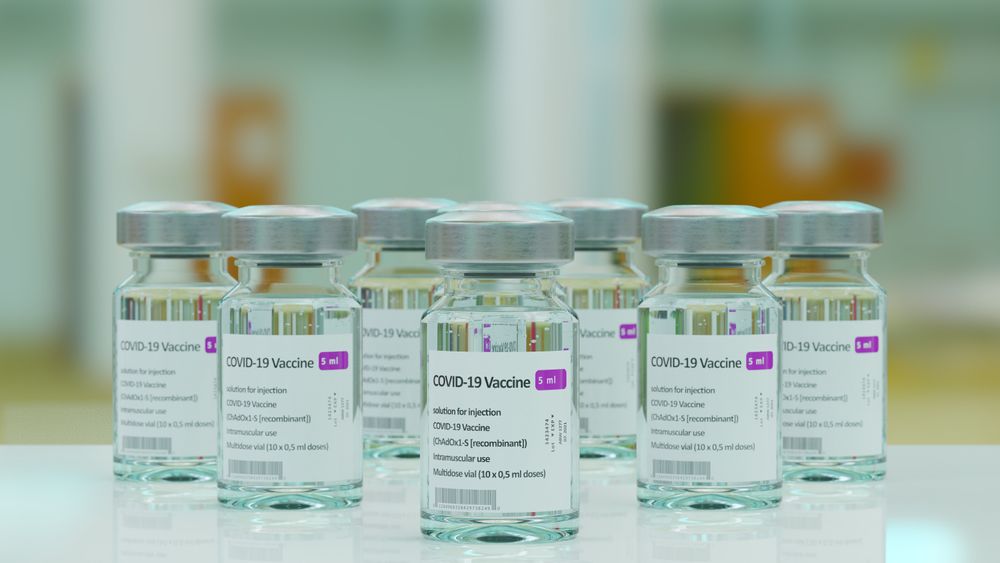The COVID-19 numbers were spiraling downwards in the past few months, and cross-country travel had just opened up with little to no restrictions. Then suddenly, on November 25th, 2021, about 23 months after the first reported case of COVID-19, a new SARS-CoV-2 variant, Omicron, was reported.

Different countries have come up with new travel regulations to contain the spread of this highly-infectious variant. If you are planning to travel/move to the US in the upcoming months - here's all you need to know.
Mandatory negative COVID-19 test report
The US Government has announced that effective December 6th, 2021, all incoming passengers will need to show a negative COVID-19 test report on arrival.
The Centers for Disease Control (CDC) says that specimens for the RT-PCR test (or any other test accepted by the country) must have been collected one calendar day before the departure instead of three days.
This implies that if you have a flight from India to the US on Saturday at 5:00 PM, you can take your RT-PCR test anytime on Friday, one day before your flight.
This is true regardless of your vaccination status.
Types of COVID tests accepted in the US
Here's an insight into the types of COVID-19 tests that are being accepted:
- Antigen (lateral flow) test or nucleic acid amplification test (NAAT)
- RT-PCR test (Reverse Transcription Polymerase Chain Reaction)
- RT-Lamp (Reverse Transcription loop-mediated amplification)
- Transcription Mediated Amplification (TMA)
- Nicking enzyme amplification reaction (NEAR)
- Helicase-dependent amplification (HDA)
Mandatory recovery certificate
If you have recently recovered from COVID-19 and are not vaccinated, you'll have to show proper recovery documentation. It should state that you've been cleared to travel by a licensed healthcare provider or a public health official 90 days before the flight's departure.
Quick Note: Your entry to the US will be suspended if you've traveled to Botswana, Eswatini, Lesotho, Malawi, Mozambique, Namibia, South Africa, and Zimbabwe in the past 14 days before the day of your flight.
Onward travel guidelines
During travel to the US, here are a few things to keep in mind:
- Wear a mask at all times
- Stay six ft. apart from anyone who did not travel with you
- Wash your hands with soap and water, or use a hand sanitizer with at least 60% alcohol

After arrival in the United States
Once you land in the US - you are not required to undergo any COVID-19 tests. However, CDC (Centers for Disease Control) has expanded a program to offer free, voluntary tests to travelers upon arrival to help detect variants.
When you've finally reached your destination, there's a chance that you could have been exposed to the COVID-19 virus. CDC recommends you to:
- Get tested for COVID-19, 3-5 days after travel, irrespective of any symptoms
- Self-monitor for COVID-19 symptoms. Isolate and get yourself tested if you develop symptoms
- Follow all the state and local guidelines that are in place for the safety of your close ones
- If you're not fully vaccinated or haven't got tested after landing, it's best to stay home and self-quarantine for ten days after travel

International travel guidelines from the Indian government
As a general mandate, the government of India has set up international travel guidelines. Any Indian citizen traveling to any foreign country must submit a self-declaration form on the online Air Suvidha portal before your scheduled travel, including your journey details during the last 14 days.
Passengers are also asked to upload their COVID-19 RT-PCR report from tests conducted within 72 hours before undertaking the journey. A negative test result is needed for the passenger to continue their travel.
If this is your first trip abroad or moving to the US for studies or work, here's a quick read on what to pack for the upcoming winters in the US and how to ensure you don't miss out on anything.
Disclaimer: The products, services, and offerings mentioned in this blog are subject to change and may vary over time. We recommend visiting our official website for the most up-to-date information on Zolve's offerings.




